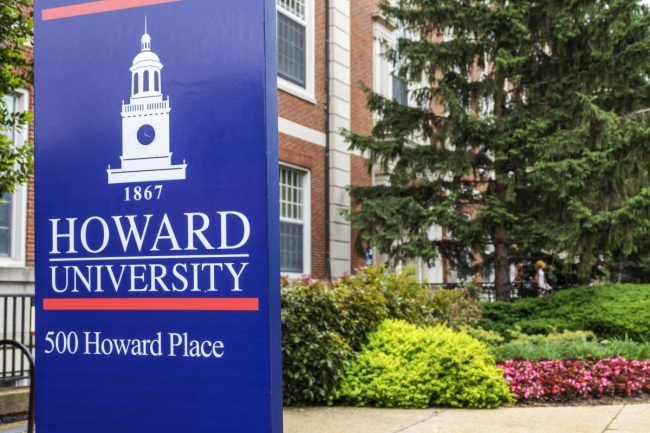You have /5 articles left.
Sign up for a free account or log in.

We witnessed anti-Blackness in full force last week—the first week of Black History Month—when at least 19 historically Black colleges and universities across the U.S. reported receiving bomb threats, triggering evacuations and lockdowns and following a similar spate of threats against HBCUs in early January.
While there was extensive media coverage of the threats and HBCUs’ responses, we believe the seriousness and significance of the threats has been widely underappreciated. The reporting, on balance, projected feelings of relief after police disclosed the threats were unsubstantiated. Some media outlets quoted students or parents who felt confused by the threats and tried to make sense of them, wondering aloud whether the bomb threats were pranks or jokes.
Amazingly, although not surprisingly, not mentioned in many of the media reports were words like “white supremacy,” “systemic racism,” “white violence” or “white terrorism.” A few news outlets such as The New York Times and National Public Radio used the terms “disrupted” or “disrupt” in their headlines.
We need to be more alarmed and outraged about these bomb threats and similar threats against historically excluded and racially oppressed groups in general. These bomb threats, credible or otherwise, do not just “disrupt” people’s lives, nor do they just close colleges and universities for a short while. They are examples of daily racial experiences that serve as reminders to Blacks that they are second-class citizens, do not belong in society, need to know their place or had better watch what they say, how they behave and what they do. In a white supremacist society steeped in anti-Black violence and anti-Black racism, the HBCU bomb threats serve as a mechanism of racial control, both physiologically and mentally.
Indeed, the threats do not need to be deemed credible to remind African Americans that anti-Black violence is not a thing of the past. A mere seven years ago in Charleston, S.C., white supremacist Dylann Roof killed nine African Americans as they worshipped in their church, to remind Black folks there is no refuge from white terrorism. Indeed, according to 2020 FBI data on hate crime statistics, Black or African American people are the most targeted racial group for hate crimes in the U.S. by a wide margin, with 2,871 reported incidents in 2020 alone—a 46 percent increase from the year before. And this is what is officially reported.
While no arrests have been made, the FBI is investigating the threats against HBCUs as a hate crime and has identified six people, all juveniles, suspected of being involved.
What is important to remember is that the HBCU bomb threats do not operate in isolation from other acts of anti-Black violence and racism. Such threats operate in conjunction with other acts of everyday anti-Black racism that work cumulatively to foster a sense of not-belonging and exacerbate existing fears about life in America as a Black or African American person. They invoke fears that are often aggravated by events spurring or condoning racial violence, such as the white supremacist Unite the Right rally that took place in Charlottesville, Va., in 2017. More recently, such fear stoking was on full display at former president Donald Trump’s Jan. 15 rally in Arizona, where Trump repeated his unfounded claims that the 2020 election was stolen from him and evoked timeless racist logic designed to stir racial tensions and fuel anti-Black sentiments and racism. Such white threats ought to be considered nothing short of white terrorism.
Finally, one does not need to look too far for evidence on how white violence, or even the insinuation of white violence, negatively affects the health and well-being of racialized Black people. Recent research published by the Proceedings of the National Academy of Sciences by David S. Curtis and colleagues indicates a strong correlation between widely publicized incidents of anti-Black violence and poor mental health among Black and African American people.
The bomb threats to HBCUs are no laughing matter, they are not a joke and they should be taken very seriously and condemned for the white terrorist acts that they are. Let us call out white supremacy and anti-Black racism where and when they occur. To do otherwise is to be complicit in the systemic racist status quo.




